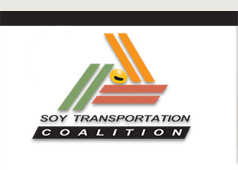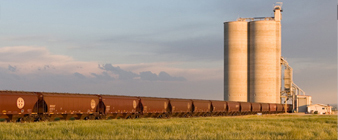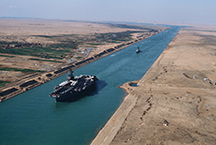 |
 |
|
| eNews • July 2015 | ||
| Promoting a Cost-Effective, Reliable and Competitive Transportation System |
||
 Egypt hopes Suez Canal expansion will see cash flood in
Egypt hopes Suez Canal expansion will see cash flood in
It's arguably the most strategic waterway in the world. One that affects most lives on the planet. The Suez Canal may cut Africa off from Asia but it's a vital lifeline connecting the East and West.
Now Egypt's President Abdel Fatah el-Sisi hopes its facelift will breathe new life into Egypt's economy.
Everything about this project is ambitious. The funds needed for the new 70 kilometers of canal was raised within eight days. Only Egyptian citizens could invest in the project.
The President gave responsibility of completing the task to Vice Admiral Mohab Mameesh of the Suez Canal Authority. After consulting experts he concluded it would take five years to complete -- but that wasn't good enough.
"It would take five years, but we pushed and we made a pressure at the time and it will arrive in three years," Mameesh said. "But when [President el-Sisi] told me in one year, I said yes and changed all the plans."
Since the project began 10 months ago, 41,000 people have been working around the clock. They'll move a total of half a trillion cubic meters of earth -- equivalent to moving 200 Great Pyramids.
To help accomplish that task, Mameesh says he has employed 75% of the world's dredgers.
The goal is to turn this one-way canal into a two-lane highway. Currently, ships have to wait to be part of three convoys with room for only eight megaships per day.
Nearly 10% of all global maritime trade passes through the Suez Canal. That's 18,000 ships a year, a figure that Mameesh hopes the new canal will increase to 20,000.
The navigation time will be reduced from 22 hours to 11 hours meaning the latest must-have electronics from Asia will arrive sooner.
Security concern
Last year, the canal earned roughly $5.5 billion, which the government hopes to increase to $13.5 billion by 2023. It's an ambitious projection when global trade increases at roughly 5% annually.
"The projected 13 billion are slated to come from passage fees and from the increase in number of ships but also efficiency and increase of maritime services presented to passing ships," says Mameesh.
The new canal is envisioned to be the cornerstone of Egypt's next grand industrial project that'll be situated along its shores. The government hopes it'll create $100 billion in revenue and produce 1 million jobs. How this will be accomplished is not entirely known, as details are scarce.
One potential roadblock to all of this is security.
Militants aligned with ISIS wage a deadly insurgency next to the canal in Northern Sinai. Hundreds of people have been killed in the fighting.
About two years ago, militants fired a rocket propelled grenade at a passing boat in the canal, but no one was killed in the attack.
Mameesh insists the boats are safe, with Egypt's military patrols helping to keep the roughly 100-mile (160 kilometer) canal secure.
But the admiral's most pressing concern is making the August deadline and bringing the 150-year-old canal into the 21st century.
Source: CNN
Soy Transportation Coalition |
|
